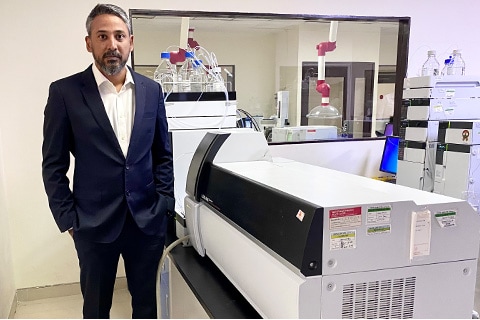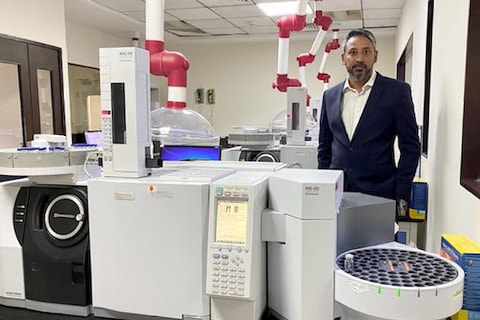Celebrating 50 Years of MS Innovation - User interviews December 2020
On the occasion of Shimadzu's 50th year of producing mass spectrometry instruments, we talk to researchers using Shimadzu MS instruments in their daily work and ask about their expectations for Shimadzu and the future of MS technology.

Sreenivas Neerukonda
Executive Director
Vimta Labs Ltd.
Main field of study:
Contract Research and Testing
1. How did you become familiar with Shimadzu?
We were introduced to Shimadzu by Spinco, with whom we have had a relationship for three decades.
2. What is your main field of research, and how are you utilizing Shimadzu equipment?
Our field of activity is contract research and testing for life sciences industries including pharma, biotech, nutraceuticals, environmental sciences, food&agri testing, and diagnostics.
We are utilizing the instruments for a variety of studies:
- Pharma/Biopharma - extractables and leachables, evaluation of genotoxic impurities, impurity profiling, and bioanalytical studies
- Food, water, beverages, nutraceuticals - nutritional evaluations, contaminant testing (pesticide and antibiotic residues, metal impurities), toxins, chemicals & colour testing.
- Environmental samples testing for volatile and semi-volatile organic pollutants
3. What are your reasons for choosing Shimadzu equipment?
We have over 40 mass spectrometers from Shimadzu which are running 24x7 across our different labs. The key reasons we chose Shimadzu technologies were firstly the promising features of LabSolutions Client Server, which is an integrating software for all analytical technologies, for easy data review and compliance management, and secondly the good value Shimadzu delivers in terms of performance and cost.
4. What trends are you seeing in your field with regards to the use of mass spectrometry?
Upcoming uses in mass spectrometry that we see in the field of food testing include:
- Allergen protein confirmations
- Adulterations and component confirmations, a shift from traditional methods to MS
- Multi residue methods for antibiotics (~100) in a single method
- Homologs analysis of various antiseptic compounds in complex matrices
On the pharma side, the latest MS technologies are able to deliver very high levels of sensitivity and resolutions, which are driving their extensive usage in better understanding of drug efficacy and safety w.r.t., impurities and metabolite identifications, including large/complex molecules.
5. What are your expectations for Shimadzu and for MS technology in general in the future?
Mass spectrometers are going to be the technology of the future to address the ever-increasing application challenges. At Vimta, thanks to the visionary leadership of our Chairman, we have been increasing the mass spec-based solutions for various applications to give better confidence and more accurate results to our customers.
Some additional features that could be considered to strengthen Shimadzu MS technology are programmable bake out options with high temperature for interface and quadrupole; and vacuum interlock options.
In the coming years, MS technologies that provide higher detection and quantitation capabilities will be the choice, not to mention the workflows that provide greater ease of use and 100% compliance to software regulatory requirements.




